By David Blyweiss, M.D., Advanced Natural Wellness
April 28, 2017
- Eat your strawberries… without the pesticides
- 12 fruits and vegetables best bought organic
- Which produce is least likely to have pesticide residues?
Strawberries are one of those fruits that almost everyone loves to eat. They’re sweet, juicy and delicious. Plus, they’re chock full of antioxidants that are good for your heart, help normalize your blood sugar, protect your brain and have anti-cancer properties.
But if you’re not buying organic strawberries, you may be wrecking all of the wonderful health benefits that come along with eating them.
You see, commercially grown strawberries come with a problem. They’re the single most pesticide-laden type of produce at your grocery store. A whopping 99% of them have detectible levels of pesticide residue. Some berries even show residue from 20 separate pesticides!
I don’t know about you, but I’d rather avoid getting a heavy dose of chemicals with my berries. The only way to do that is to always purchase organically grown strawberries.
But strawberries aren’t the only fruit (or vegetable for that matter) you should always buy in its organic form.
12 Fruits and Vegetables Best Bought Organic
There are a few organizations that I have a great deal of respect for. One of them is the Environment Working Group (EWG).
Each year this non-profit group analyzes the amount of pesticide residue on the fruits and vegetables you buy at the supermarket. Then they release a report called “The Dirty Dozen.” It’s a list of commercial produce that contain the highest levels of pesticide residue.
This year strawberries top the list. Coming in at a close second is spinach. It had an average of twice as much pesticide residue by weight than any other crop. And 75% of spinach had residues of a neurotoxic pesticide that’s been banned in Europe.
Additionally, nearly all samples of peaches, nectarines, cherries and apples tested positive for pesticides.
Pears, grapes, celery, tomatoes, sweet bell peppers and potatoes also made the list. And hot peppers are included as a “plus” to the dirty dozen.
Now here’s the thing. Most people think that if they wash or peel their fruits and vegetables before eating them, it will remove any dangerous chemicals left behind from the growing process.
The World's Quickest Solution for Ending Prostate and Urinary Misery
This has recently been revealed to be one of the only real breakthroughs in prostate health.
The seeds of a strange fruit (sometimes called "Chinese Apples") hold powerful phytonutrients that are a revolution in prostate health.
In fact, UCLA and Veterans Administration research have now proved this to be true.
Not only that, but it may be the worlds quickest solution for ending prostate misery.
Simply stated, these phytonutrients represent a huge step beyond beta sitosterol, saw palmetto, and other phytosterols alone.
Simply click HERE if you want to have fast prostate relief...restful, uninterrupted sleep...no more constant "urges to go"...enhanced virility...and optimal prostate support for life.
Well, when EWG performs their analysis, those are things they take into consideration. Even when these foods were washed – and sometimes when peeled – the pesticides remained.
Which Produce is least likely to have Pesticide Residues?
Pesticides are known to be endocrine disruptors. Simply put, this means they disrupt the health balance of your hormones. They’re also obesogenic, linked to higher rates and increase your chances of brain and nervous system disorders.
Plus, they tend to build up in the fatty tissue of your body where they become toxic to your health. So it’s extremely important to limit your exposure to these pesticides.
Of course, when you buy organic you sidestep the issue altogether. In fact, people who buy the most organic produce have significantly less pesticide residue in their urine than people who purchase lower quantities of commercial produce.
So when it comes to the dirty dozen (+1) always choose organic.
On the other hand, EWG also releases a report on the “Clean Fifteen”. These are commercially grown fruits and vegetables that are the least likely to contain pesticide residues. This means you can safely purchase non-organic versions as long as you wash them prior to eating.
Here’s a complete roundup of the two lists for your shopping convenience.
| The Dirty Dozen (+1) | The Clean Fifteen | |
| ALWAYS BUY ORGANIC | WASH BEFORE EATING | |
| 1. Strawberries | 1. Sweet corn | |
| 2. Spinach | 2. Avocados | |
| 3. Nectarines | 3. Pineapples | |
| 4. Apples | 4. Cabbage | |
| 5. Peaches | 5. Onions | |
| 6. Pears | 6. Frozen sweet peas | |
| 7. Cherries | 7. Papayas | |
| 8. Grapes | 8. Asparagus | |
| 9. Celery | 9. Mangos | |
| 10. Tomatoes | 10. Eggplant | |
| 11. Sweet Bell Peppers | 11. Honeydew melon | |
| 12. Potatoes | 12. Kiwi | |
| 13. Cantaloupe | ||
| (+1) Hot Peppers | 14. Cauliflower | |
| 15. Grapefruit |
SOURCES:
Afrin S, et al. Promising Health Benefits of the Strawberry: A Focus on Clinical Studies. J Agric Food Chem. 2016 Jun 8;64(22):4435-49.
IARC Monographs Volume 112: evaluation of five organophosphate insecticides and herbicides. World Health Organization. Mar 2015.
Mnif W, et al. Effect of Endocrine Disruptor Pesticides: A Review. Int J Environ Res Public Health. 2011 Jun; 8(6): 2265–2303.
Curl CL, et al. Estimating pesticide exposure from dietary intake and organic food choices: the Multi-Ethnic Study of Atherosclerosis (MESA). Environ Health Perspect. 2015 May;123(5):475-83.

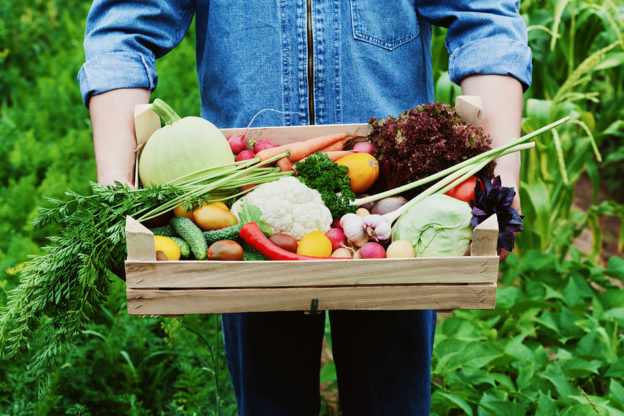
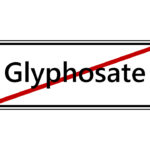
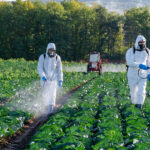
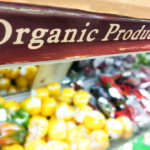
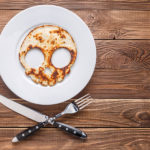


Is broccoli on the clean list or the dirty list? I have seen these lists before but none have ever mentioned broccoli and whether it is clean or dirty.